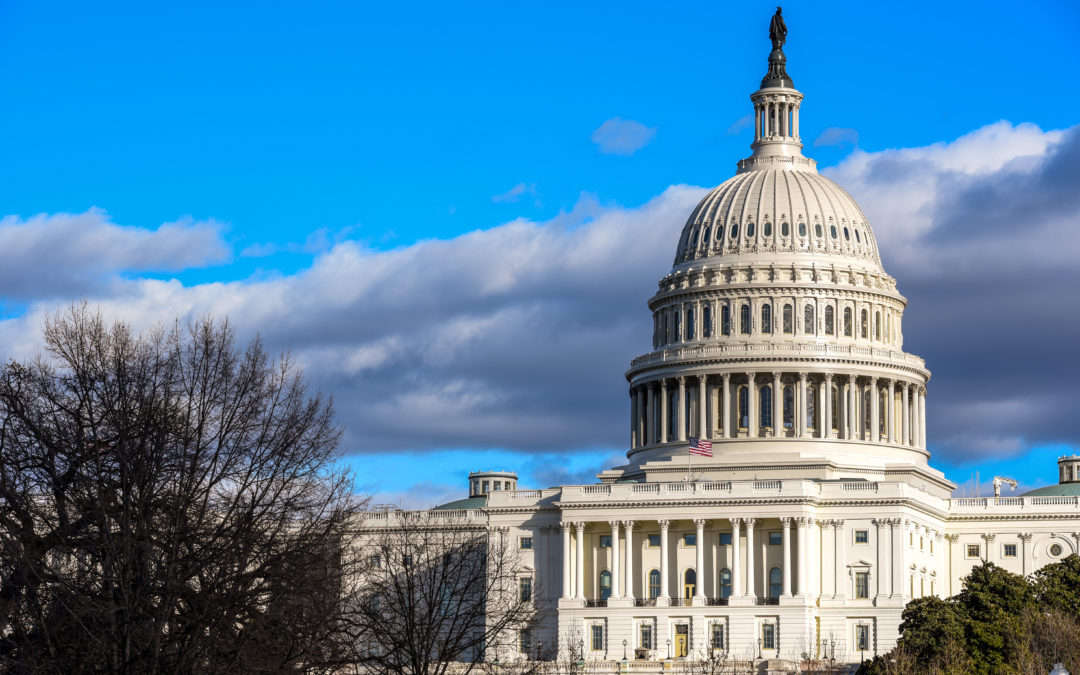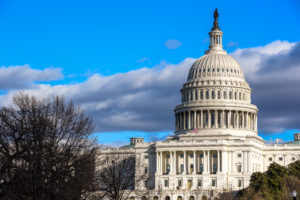
“America Is Not Racist”-A Prophetic Reflection

West side of the Capitol Building at Capitol Hill in Washington DC. Daily photos in the afternoon, good for late autumn, winter and early spring illustration
On the night before President Joe Biden’s 100th Day in office, he gave a speech to a joint session of the United States Congress. This speech was intended to be an opportunity to talk about the president’s accomplishments in his first one hundred days in office, as well as policy proposals for the future. For the past 55 years, after the president gives a speech to a joint session of Congress, there is a response from a member of the opposing political party. In the case of President Biden, a Democrat, the opposition response came from Republican Senator Tim Scott of South Carolina. Both speeches were filled with appealing rhetoric, rehearsal of recent party of achievements, and promises about possibilities for the future given that party’s leadership. However, for many African Americans who watched these two addresses, the discussions of racism stood out most. President Biden called white supremacist terrorism as the most lethal form of racism in the nation right now. Senator Scott talked about how he experienced the pain of discrimination when he pulled over for no reason and followed in a store. Both made statements that stole headlines for Black audiences.
For President Biden, it was:
“We have a giant opportunity to bend the arc of the moral universe toward justice. Real justice. And with the plans I have outlined tonight, we have a real chance to root out the systemic racism that plagues American life in so many ways.”
For Senator Scott, it was:
“From colleges to corporations to our culture, people are making money and gaining power by pretending we haven’t made any progress. By doubling down on the divisions we’ve worked so hard to heal. You know this stuff is wrong. Hear me clearly: America is not a racist country.”
The contrast was stark. A white man holding the highest office in the land spoke openly about the problem of systemic racism, and a Black man, who is the first non-white senator from his state since reconstruction, said America is not a racist country. Both men believe Americans must work together to overcome issues, including racism. But their visions for the extent of the work and the approach to the work are radically different. How should we respond as Black Christians to this politicization of the sin of racism?
Isaiah offers us both challenge and hope in Isaiah 29, as we face the complexity of confronting racism in the United States. The first thing is to acknowledge that God is not looking for great speeches from us. He is looking for true faithfulness. The Lord was disappointed in Israel for saying they loved Him, but their actions showed the opposite. The United States has a history of being hypocritical when it comes to race; it is a clear contradiction that the same Constitution that guarantees equality and freedom to its citizens makes African Americans 3/5 of a human, denies rights to everyone except white land-owning men, and appropriates land taken from American Indians. As a country, we have made amendments to our Constitution, passed legislation to create a more just and equitable society, and had celebrations to recognize the contributions of different cultures. But we often live in denial or outright embrace our historic sins as a nation. We have yet to truly repent for how racism has harmed our nation.
Isaiah calls out the sins of Israel, and then prophesies a day when the Lord’s truth and justice will reign. Isaiah speaks to God’s judgment on the status quo oppression of the vulnerable in the nation, and God’s ultimate redemption of His people. Isaiah assures us that even our intelligence and wisdom are nothing compared to God’s ultimate wisdom. However, we temporarily solve problems that pale in comparison to God’s desire for His children. God’s promise of His Kingdom on earth as it is in heaven is greater than anything we could imagine. God wants to use His people to speak honestly about the sin in the world, and also His hope for the world.
Isaiah says:
“For when they see their many children and all the blessings I have given them, they will recognize the holiness of the Holy One of Jacob. They will stand in awe of the God of Israel” (Isaiah 29:23, NLT).
It is God’s work in our lives, and especially how we impact the next generation, that will cause others to recognize His glory, and His wisdom that will cause others to want to learn His ways. We must do the work to make our nation more just, while having the humility to never mistake our human work as God’s ultimate justice (Micah 6:8). We must build a more just world for our children and the next generation. The sin of racism is a problem we must all confront, but the ultimate justice flows from God. Let us be humble as we continue to seek God’s justice on earth as it is in heaven.

